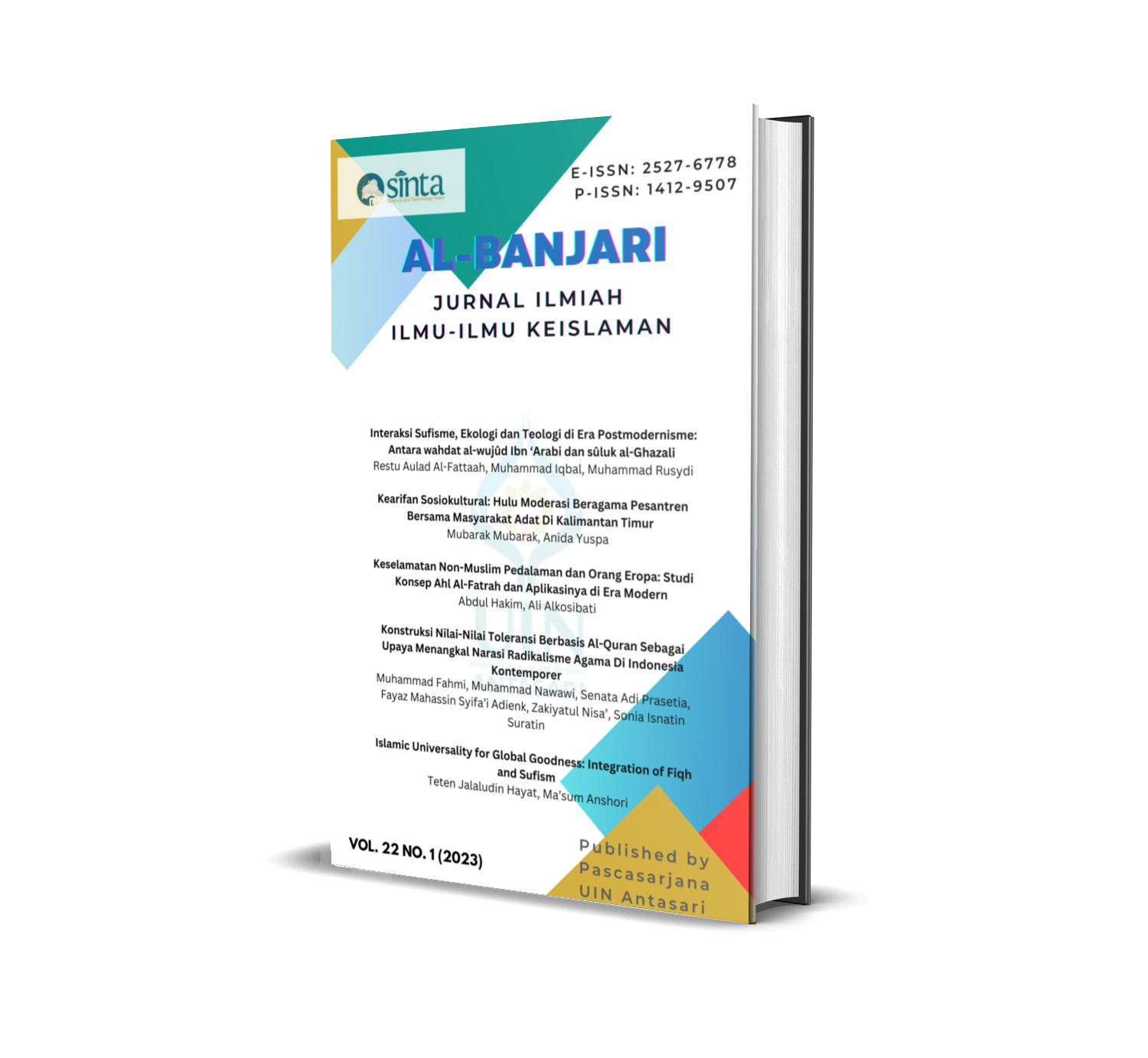Reduction of Religion: Attitude and Religious Behavior of Indonesian College Students
DOI:
https://doi.org/10.18592/albanjari.v22i2.12345Abstract
This research is motivated by the phenomenon of strengthening radicalism in the campus involving students and lecturers. The findings of several studies confirm an increasing trend of radicalism among students. The purpose of this research is to answer the main issue of the research which is to find out radicalism among public and religious college students. This research is field research, data and information obtained directly in the field, using quantitative methods. Data collection techniques through a closed questionnaire (closed questionnaire) using a Likert Scale. A number of universities in Java and Kalimantan were sampled in this study. This research found that radicalism among public and religious college students fluctuated with narrative responses at the level of soft radicalism. However, the narrative of radicalism is so strong in understanding, but tends to show a downward trend in attitudes and behavior. The idea of applying Islamic law is still the main choice for most respondents, but it is inversely related to the response to the application of the caliphate. Prohibition of Hizbut Tahrir Indonesia (HTI) organization is effective in reducing the attitude and behavior of radicalism among students.Downloads
Published
2024-02-23
Issue
Section
Articles
License

This work is licensed under a Creative Commons Attribution-ShareAlike 4.0 International License.
Authors who publish with this journal agree to the following terms:
- Authors retain copyright and grant the journal right of first publication with the work simultaneously licensed under a Creative Commons Attribution License that allows others to share the work with an acknowledgement of the work's authorship and initial publication in this journal.
- Authors are able to enter into separate, additional contractual arrangements for the non-exclusive distribution of the journal's published version of the work (e.g., post it to an institutional repository or publish it in a book), with an acknowledgement of its initial publication in this journal.
- Authors are permitted and encouraged to post their work online (e.g., in institutional repositories or on their website) prior to and during the submission process, as it can lead to productive exchanges, as well as earlier and greater citation of published work (See The Effect of Open Access).


































